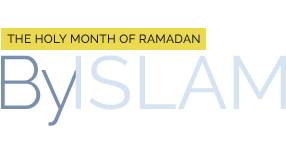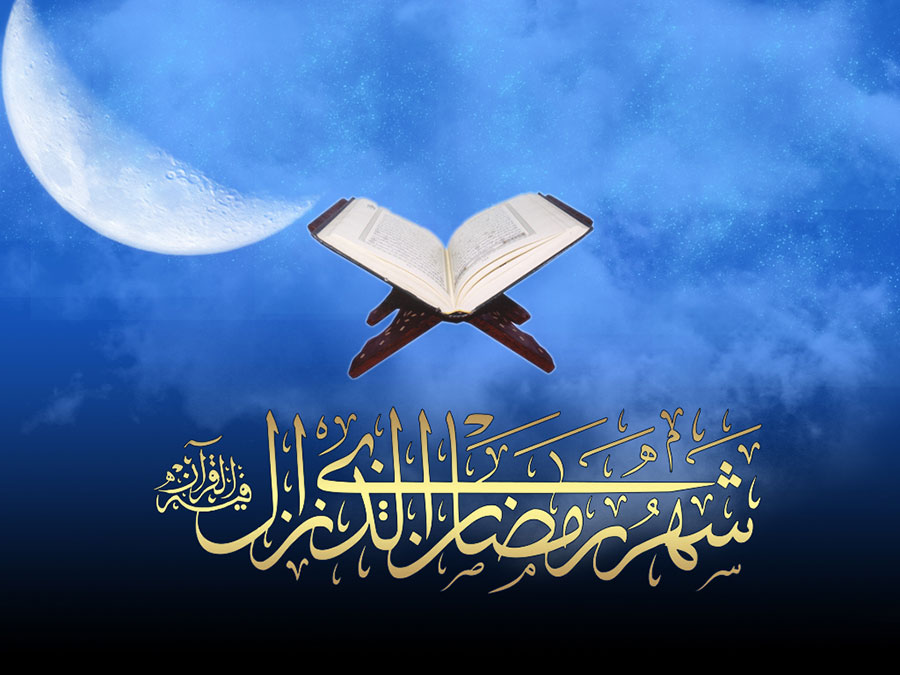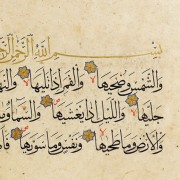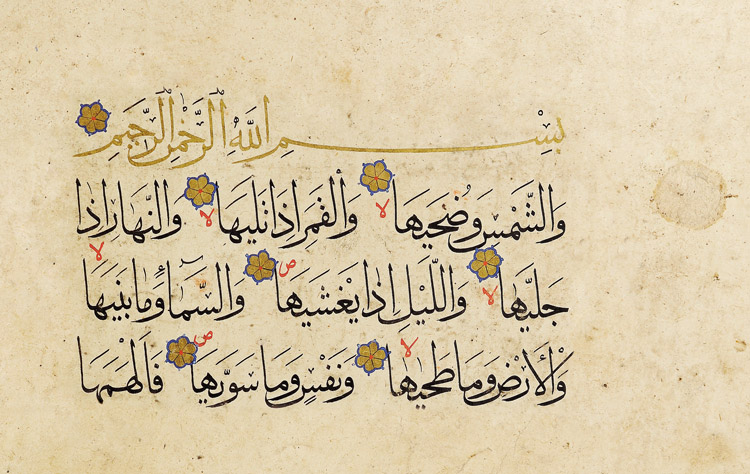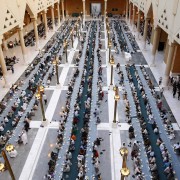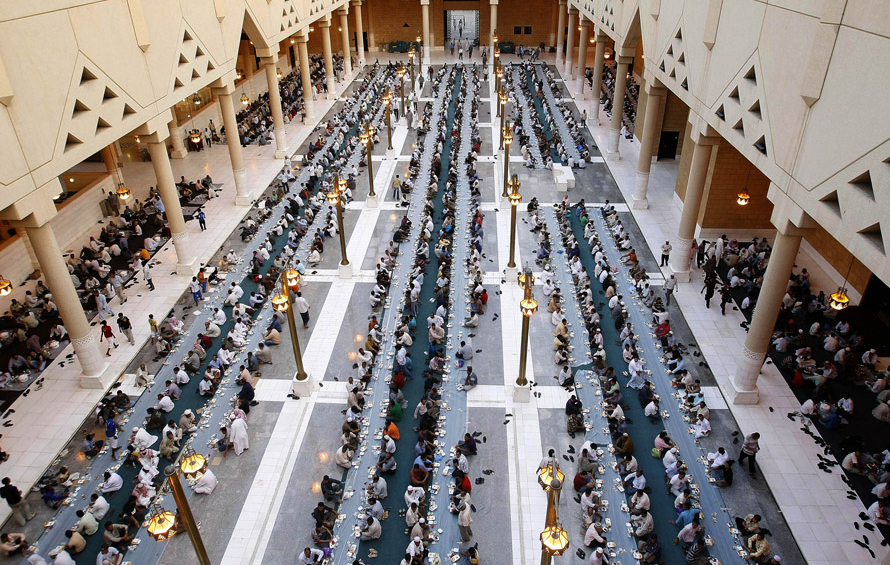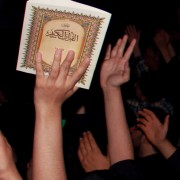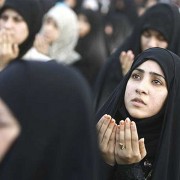What is the Significance of Ramadhan Month?
 The Month of Ramadhan is the holiest one in the Islamic calendar and begins with all its social, moral and spiritual blessings. The following sentences of an invocation point to some of these blessings:-
The Month of Ramadhan is the holiest one in the Islamic calendar and begins with all its social, moral and spiritual blessings. The following sentences of an invocation point to some of these blessings:-
“O Allah, this is the month of Ramadhan, in which Thou didst sent the Quran as a guide for people and as a clear sign to differentiate between right and wrong; and it is the month of fasting, month of prayers, month of returning (to Thee) and month of repentance; it is the month of forgiveness and mercy . . . ; the month in which is the ‘Night of Qadr’ which is better than thousand months
. . . . ; O Allah Bless Muhammad and his progeny . . and keep me free for Thy worship and for reciting Thy Book. “
It appears from the above sentences that some amongst the blessings of this month are the Qur’an, the Night of Qadr, the repentance from sins and mutual understanding and forgiveness.
According to Islamic belief, every action, whether good or bad, carries more weight in this month. Thus, charity is a virtue at all times, but is more virtuous in this month; and injustice is an evil at all times, but is more evil in these days. Reciting Qur’an is a commendable deed whole year around, but during the fast it assumes a far greater significance. The Holy Prophet has said: “Everything has its own spring season, and the spring of the Qur’an is the month of Ramadhan. “
It was in this month that the Qur’an was revealed to the Holy Prophet. According to his words, the Qur’an is “the deliverer from wilderness, eyesight for the blind, pardon for the sinner, light in blackness, safety from disaster, rescue for the castaway, clarity in the chaos, and the means to reach safely from this world to the life hereafter; and herein is the perfection of your religion; and the path away from the Qur’an goes to Hell only.”
One of the miracles of the Qur’an is its everlasting freshness even after such long crushing centuries. The Holy Prophet said that everything becomes old by usage and passage of time except the Qur’an, because its treasure would never exhaust and its wonders would never cease.
Mr. James A. Michener refers to this aspect of the Book in “Islam — the Misunderstood Religion” (Readers’ Digest, May, 1955) in these words: “The Koran is probably the most often read book in the world, surely the most often memorised, and possibly the most influential in the daily life of the people who believe in it…. It is neither poetry nor ordinary prose, yet it possesses the ability to arouse its hearers to ecstasies of faith.”
Laura Veccia Vaglieri writes in “Apologie de I’lslamisme” a translation of which runs as follows: “But there is another proof of the Divinity of the Qur’an; it is the fact that it has been preserved intact through the ages since the time of its revelation till the present day….. Read and re-read by the Muslim world, this book does not rouse in the faithful any weariness; it rather, through repetition, is more loved every day. It gives rise to a profound feeling of awe and respect in the one who reads it or listens to it. “
But we must remember that reciting the Qur’an is just a step towards the ultimate goal: understanding and following. Allah says:
Do they not earnestly seek to understand the Qur’an, or are their hearts locked up by them? (Qur’an, 47:24.).
Reading the Qur’an with proper understanding bears the fruits of spiritual and moral upliftment and material and intellectual advancement. It is better to read a few verses with meditation rather than finishing the whole book in a day like a parrot without knowing what is said.
The Qur’an is the purest and highest of Arabic literature. But those who depend upon the translations for Qur’anic knowledge often fail to appreciate its lofty standard. First of all, there is the difficulty of translating this book into any other language; because in the words of A.J. Arbury, it is “a foreign idiom, for the Koran is God’s revelation in Arabic, and the emotive and evocative qualities of the original disappear almost totally in the skilfullest translation.” (The Holy Koran, an introduction; London, 1953).
But according to the same author, “bad translation is not the whole story by any means . . . No, the fault lies not so much in the manner of translation as in the manner of reading the translations. The root of the trouble is that the ordinary reader, and for that .matter the extraordinary reader as well, has not been sufficiently advised how to read the Koran . . . The Koran, like the poetry it resembles in so many ways, is best sampled a little at a time; and that little deserves and needs meditation.”
Laura Veccia Vaglieri comments: “On the whole we find in it a collection of wisdom which can be adopted by the most intelligent of men, the greatest of philosophers and the most skilful of politicians.”
If a man recites the Qur’an with meditation and understanding, he would learn morals which would help him acquire spiritual perfection; he would feel encouraged to follow the foot-prints of the men of God; he would be sorry for whatever sins and mistakes he might have committed in his life. This will make him turn towards God with a soul full of gratitude for all the blessings bestowed upon him by God, and full of remorse for all his misbehaviours.
It is for this reason that the month of Ramadhan is described as the month of repentance. The Holy Prophet has said: “There is no intercessor better than repentance.” Allah in His grace forgives all sins and transgressions if a sinner repents sincerely. The operative word is “Sincerely”, A repentance without a change of heart is no repentance. It must produce change in habit, honesty in dealing, love and fear of God in actions.
According to Imam Ali, “repentance must have six elements: the repentant must be really sorry for what he had done; he must have firm determination not to do it again; he must make amends for whatever wrongs he might have done to others; he must fulfil all the obligations of religion previously neglected; he should fast long enough to melt away the flesh grown of unclean and unlawful food; and he should feel the taste of obedience to Allah as he was previously enjoying the taste of sin.”
When a man repents sincerely, Allah makes him as clean as he was the day he was born. The Holy Prophet has said: “One who repents from sin is like the one who never committed any sin.”
It is obvious from the above discourse that the month of Ramadhan and its fast purify the soul and bring a man nearer to Allah. “Fast is a shield against Hell”, said the Holy Prophet. The fast mentioned in this tradition is not merely abstinence from food and drink. It is an act of self-denial for the love of God. And this voluntary self-denial imposes a very high discipline , where the external regulations occupy the lowest rung of the ladder. Imam Ali said: “Many are the people whose only share in the fast is the hunger and thirst.”
The measure of a man’s nobility is his love of, and obedience to, God. When for a whole month he follows the words of Allah unquestioningly, without regret and without complaint, and when he spends his time in prayer, charity, humility and noble works, should one wonder if he gets fully disciplined to obey each and every command of God unhesitatingly and spontaneously without any thought of avoiding or dodging any order.
A fast which produces such results is surely a shield against Hell, and is worthy of the pronouncement of Allah: “Fast is for me and I will reward it Myself.”
Source: Fast; written by Allamah Sayyid Sa’eed Akhtar Rizvi
